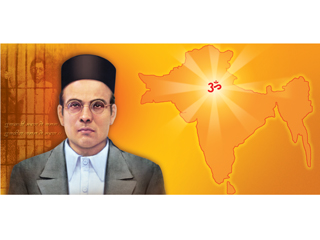 The 18-year-old who commanded Burma’s ‘Rani of Jhansi’ Regiment
The 18-year-old who commanded Burma’s ‘Rani of Jhansi’ Regiment
The stories of Subhash Chandra Bose and his Azad Hind Fauj (Also known as the Indian National Army or INA) have long been the stuff of legend. Yet few have heard of the ‘Rani of Jhansi’ regiment, an integral part of the INA.
Fewer still have heard the extraordinary stories of the ordinary women who made up this all-female regiment. One such unacknowledged heroine is a girl who lived a life of intrigue and danger to help her Nation fight colonial rule.
Born and brought up in a well-to-do Tamil family living in then British Malaya, Janaki was only 16 when Subhash Chandra Bose arrived in Singapore in July 1943. His aim ? To collect funds and recruit volunteers for INA.

Addressing a gathering of nearly 60,000 Indians (of which Janaki was a part), the charismatic leader made a fiery speech, urging everyone to take up arms against the British Raj. It was Netaji’s powerful words that kindled a fervour in the young girl to fight for the freedom of a country she had never seen but felt like she belonged to.
Janaki’s first step was to remove all her expensive gold jewellery and donate it to the Indian National Army. Next, she announced her decision to participate in one of the most improbable events in World War II Asia-Pacific theatre – the creation of an all-female combat squad, INA’s ‘Rani of Jhansi’ Regiment (RJR) !
Janaki’s announcement led to immediate and strong objections from her family, especially her father. But the deeply patriotic girl stood her ground and after much persuasion, her father reluctantly agreed. (According to RJR’s rules, an unmarried applicant needed the signature of her father, and married women of her husband on the application form.)
And so, by the time RJR was formally inaugurated on 22nd October 1943 on Singapore’s Waterloo Street, Janaki was an integral part of INA’s 500 ‘fighting Ranis’. Here, they trained under the command of Captain Lakshmi Swaminathan (later Lakshmi Sahgal), the daughter of an Indian National Congress leader who had settled in Singapore after the onset of the War.
The daily drill at RJR included night marches, bayonet-charging, tactical combat and weapon skills including rifles, machine guns and grenades. The training was tough, the conditions were basic and quite unlike the privileged, middle-class world to which many of the girls were used to.
Each of the girls also knew when they left home that the probability of their return was extremely little. Yet, they persevered, choosing the hardships of camp life over the security of their homes. For they knew that their role in RJR also promised liberation of another kind : Their own !
In fact, such was the courage and resolve of these pioneering girls that not one abandoned their regiment even when the victorious Allies were closing in on them and after hundreds of their male comrades surrendered or deserted – a fact many INA officers and British Army officers later testified to.
As for Janaki, the focussed girl soon rose through the ranks to become a Lieutenant. In April 1944, Captain Lakshmi was transferred permanently to the base hospital in Maymyo and 18-year-old Janaki (remembered as a strict disciplinarian by her subordinates) became the commander of the Burma contingent of RJR.
In the months that followed, Janaki would go on to rescue wounded soldiers when the British bombed the Red Cross hospital in Rangoon. Later, when the INA was in retreat, she would trek through the swamps and forests of Burma with Netaji to get fellow fighters back to their homes safely.
When INA was disbanded after the British won the war, Janaki joined the Indian Congress Medical Mission in Malaya. Inspired by the work being done by the Indian National Congress, she helped John Thivy establish the Malayan Indian Congress in 1946.
In 1948, she met Athi Nahappan (then the editor and publisher of the Malayan Tamil daily Tamil Nesan) and married him the next year.
In the years to come, time and age hardly withered her spirit and determination to serve people. Passionate about social welfare, Janaki began playing an active role in organisations such as the Girl Guide Association and the National Council of Women’s Organisation.
Unsurprisingly, her tireless efforts also saw her being nominated as a senator in the Upper House (Dewan Negara) of the Malaysian Parliament. Honoured with numerous national and international awards, Janaki also became the first woman of Indian origin outside India to be awarded one of India’s highest titles, the Padma Shri.
Setting an enduring example of courage and compassion, Janaki Thevar was a woman who walked shoulder-to-shoulder with the men during trying times. Despite the failure of her dream to help INA defeat the British, she deserves to be remembered and respected for her commitment to the highest of human aspirations – Freedom.

 Savarkar’s stories of sacrifice, courage and determination are still inspiring
Savarkar’s stories of sacrifice, courage and determination are still inspiring Marita Marita Mareto Zunjen (I welcome death, but fight I will) : goosebumps guaranteed !
Marita Marita Mareto Zunjen (I welcome death, but fight I will) : goosebumps guaranteed ! Do not link Netaji with Savarkar; Netaji was a secular leader : Chandrakumar Bose
Do not link Netaji with Savarkar; Netaji was a secular leader : Chandrakumar Bose The Unsung Hero of our Freedom Struggle Veer Savarkar Smritidin (Date) : 26th February
The Unsung Hero of our Freedom Struggle Veer Savarkar Smritidin (Date) : 26th February Lokmanya Tilak had changed the direction of the freedom struggle : PM Modi
Lokmanya Tilak had changed the direction of the freedom struggle : PM Modi ‘The India House’ movie will be produced : Ram Charan announces on Swatantryaveer Savarkar’s birth anniversary
‘The India House’ movie will be produced : Ram Charan announces on Swatantryaveer Savarkar’s birth anniversary